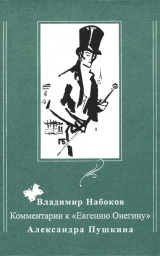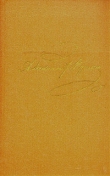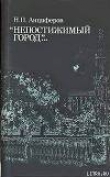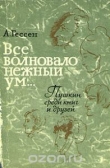Комментарии к «Евгению Онегину» Александра Пушкина

Текст книги "Комментарии к «Евгению Онегину» Александра Пушкина"
Автор книги: Владимир Набоков
Жанры:
Критика
,сообщить о нарушении
Текущая страница: 63 (всего у книги 67 страниц)
CHAPTER FIVE
Never know these frightful dreams,
You, O my Svetlana!
Zhukovski
I
That year autumnal weather
was a long time abroad;
nature kept waiting and waiting for winter.
4 Snow only fell in January,
on the night of the second. Waking early,
Tatiana from the window saw
at morn the whitened yard,
8 flower beds, roofs, and fence;
delicate patterns on the panes;
the trees in winter silver,
gay magpies outside,
12 and the hills softly overspread
with winter's brilliant carpeting.
All's bright, all's white around.
II
Winter! The peasant, celebrating,
in a flat sledge inaugurates the track;
his naggy, having sensed the snow,
4 shambles at something like a trot.
Plowing up fluffy furrows,
a bold kibitka flies:
the driver sits upon his box
8 in sheepskin coat, red-sashed.
Here runs about a household lad,
upon a hand sled having seated “blackie,”
having transformed himself into the steed;
12 the scamp already has frozen a finger.
He finds it both painful and funny – while
his mother, from the window, threatens him...
III
But, maybe, pictures of this kind
will not attract you;
all this is lowly nature;
4 there is not much refinement here.
Warmed by the god of inspiration,
another poet in luxurious language
for us has painted the first snow
8 and all the shades of winter's delectations.27
He'll captivate you, I am sure of it,
when he depicts in flaming verses
secret promenades in sleigh;
12 but I have no intention of contending
either with him at present or with you,
singer of the young Finnish Maid!28
IV
Tatiana (being Russian
at heart, herself not knowing why)
loved, in all its cold beauty,
4 a Russian winter:
rime in the sun upon a frosty day,
and sleighs, and, at late dawn,
the radiance of the rosy snows,
8 and gloam of Twelfthtide eves.
Those evenings in the ancient fashion
were celebrated in their house:
the servant girls from the whole stead
12 told their young ladies' fortunes
and every year made prophecies to them
of military husbands and the march.
V
Tatiana credited the lore
of plain-folk ancientry,
dreams, cartomancy,
4 prognostications by the moon.
Portents disturbed her:
mysteriously all objects
foretold her something,
8 presentiments constrained her breast.
The mannered tomcat sitting on the stove,
purring, would wash his muzzlet with his paw:
to her 'twas an indubitable sign
12 that guests were coming. Seeing all at once
the young two-horned moon's visage
in the sky on her left,
VI
she trembled and grew pale.
Or when a falling star
along the dark sky flew
4 and dissipated, then
in agitation Tanya hastened
to whisper, while the star still rolled,
her heart's desire to it.
8 When anywhere she happened
a black monk to encounter,
or a swift hare amid the fields
would run across her path,
12 so scared she knew not what to undertake,
full of grievous forebodings,
already she expected some mishap.
VII
Yet – in her very terror
she found a secret charm:
thus has created us
4 nature, inclined to contradictions.
Yuletide is here. Now that is joy!
Volatile youth divines —
who nought has to regret,
8 in front of whom the faraway of life
extends luminous, boundless;
old age divines, through spectacles,
at its sepulchral slab,
12 all having irrecoverably lost;
nor does it matter: hope to them
lies with its childish lisp.
VIII
Tatiana with a curious gaze
looks at the submerged wax:
with its wondrously cast design,
4 to her a wondrous something it proclaims.
From a dish full of water
rings come out in succession;
and when her ring turned up,
8 'twas to a ditty of the ancient days:
“There all the countrymen are rich;
they heap up silver by the spadeful!
To those we sing to will come Good
12 and Glory!” But portends bereavements
the pitiful tune of this dit:
to maidens' hearts sweeter is “Kit.”29
IX
The night is frosty; the whole sky is clear;
the splendid choir of heavenly luminaries
so gently, so unisonally flows....
4 Tatiana, in her low-cut frock,
into the wide courtyard comes out;
she trains a mirror on the moon;
but in the dark glass only
8 the sad moon trembles....
Hark!... the snow creaks... a passer-by; the maiden
flits up to him on tiptoe —
and her little voice sounds
12 more tender than a reed pipe's strain:
“What is your name?”30 He looks,
and answers: “Agafón.”
X
On the nurse's advice, Tatiana,
planning that night to conjure,
has ordered in the bathhouse secretly
4 a table to be laid for two.
But suddenly Tatiana is afraid....
And I – at the thought of Svetlana —
I am afraid; so let it be...
8 we're not to conjure with Tatiana.
Tatiana has removed
her silken sash, undressed,
and gone to bed. Lel hovers over her,
12 while under her pillow of down
there lies a maiden's looking glass.
Now all is hushed. Tatiana sleeps.
XI
And dreams a wondrous dream Tatiana.
She dreams that she
over a snowy lawn is walking,
4 surrounded by sad gloom.
In front of her, between the snowdrifts,
dins, swirls its wave
a churning, dark, and hoary torrent,
8 by the winter not chained; two thin poles, glued
together by a piece of ice
(a shaky, perilous small bridge),
are laid across the torrent; and before
12 the dinning deep,
full of perplexity,
she stopped.
XII
As at a vexing separation,
Tatiana murmurs at the brook;
sees nobody who from the other side
4 might offer her a hand.
But suddenly a snowdrift stirred,
and who appeared from under it?
A large bear with a ruffled coat;
8 Tatiana uttered “Ach!” and he went roaring
and a paw with sharp claws
stretched out to her. Nerving herself,
she leaned on it with trembling hand
12 and worked her way with apprehensive steps
across the brook; walked on —
and what then? The bear followed her.
XIII
She, to look back not daring,
accelerates her hasty step;
but from the shaggy footman
4 can in no way escape;
grunting, the odious bear keeps lumbering on.
Before them is a wood; the pines
are stirless in their frowning beauty;
8 all their boughs are weighed down
by snow flocks; through the summits
of aspens, birches, lindens bare
the beam of the night luminaries shines;
12 there is no path; shrubs, precipices, all
are drifted over by the blizzard,
plunged deep in snow.
XIV
Into the forest goes Tatiana; the bear follows;
up to her knee comes yielding snow;
now by the neck a long branch suddenly
4 catches her, or by force it tears
out of her ears their golden pendants;
now in the crumbly snow sticks fast
a small wet shoe come off her charming foot;
8 now she lets fall her handkerchief —
she has no time to pick it up,
is frightened, hears the bear behind her,
and even is too shy to raise
12 with tremulous hand the hem of her dress;
she runs; he keeps behind her;
and then she has no force to run.
XV
Into the snow she's fallen; the bear deftly
snatches her up and carries her;
she is insensibly submissive;
4 stirs not, breathes not;
he rushes her along a forest road;
sudden, 'mongst trees, there is a humble hut;
dense wildwood all around; from every side
8 'tis drifted over with desolate snow,
and brightly glows a window;
and in the hut are cries and noise;
the bear quoth: “Here's my gossip,
12 do warm yourself a little in his home!”
and straight he goes into the hallway
and on the threshold lays her down.
XVI
Tatiana comes to, looks:
no bear; she's in a hallway;
behind the door there's shouting and the jingle
4 of glasses as at some big funeral.
Perceiving not a drop of sense in this,
she furtively looks through the chink
– and what then? She sees... at a table
8 monsters are seated in a circle:
one horned and dog-faced;
another with a rooster's head;
here is a witch with a goat's beard;
12 here, prim and proud, a skeleton;
yonder, a dwarf with a small tail; and there,
something half crane, half cat.
XVII
More frightful still, and still more wondrous:
there is a crab astride a spider;
there on a goose's neck
4 twirls a red-calpacked skull;
there a windmill the squat-jig dances
and rasps and waves its vanes.
Barks, laughter, singing, whistling, claps,
8 the parle of man, the stamp of steed!31
But what were the thoughts of Tatiana
when 'mongst the guests she recognized
him who was dear to her and awesome —
12 the hero of our novel!
Onegin at the table sits
and through the door stealthily gazes.
XVIII
He gives the signal – and all bustle;
he drinks – all drink and all cry out;
he laughs – all burst out laughing;
4 knits his brows – all are silent;
he is the master there, 'tis plain;
and Tanya is already not so awestruck,
and being curious now she opens
8 the door a little....
Sudden the wind blows, putting out
the light of the nocturnal flambeaux;
the gang of goblins flinches;
12 Onegin, his eyes flashing,
making a clatter rises from the table;
all rise; he marches to the door.
XIX
And fear assails her; hastily
Tatiana strains to flee:
not possible; impatiently
4 tossing about, she wants to scream —
cannot; Eugene has pushed the door,
and to the gaze of the infernal specters
the girl appears; ferocious laughter
8 wildly resounds; the eyes of all,
hooves, curved proboscises,
tufted tails, tusks,
mustaches, bloody tongues,
12 horns, and fingers of bone —
all point as one at her,
and everybody cries: “Mine! Mine!”
XX
“Mine!” Eugene fiercely said,
and in a trice the whole gang vanished;
the youthful maid remained with him
4 twain in the frosty dark;
Onegin gently draws Tatiana32
into a corner and deposits her
upon a shaky bench
8 and lets his head sink on her shoulder;
all of a sudden Olga enters,
followed by Lenski; light gleams forth;
Onegin brings back his raised arm
12 and wildly his eyes roam,
and he berates the unbidden guests;
Tatiana lies barely alive.
XXI
The argument grows louder, louder: Eugene
suddenly snatches a long knife, and Lenski
forthwith is felled; the shadows awesomely
4 have thickened; an excruciating cry
resounds... the cabin lurches...
and Tanya wakes in terror....
She looks – 'tis light already in the room;
8 dawn's crimson ray
plays in the window through the frozen pane;
the door opens. Olga flits in to her
rosier than Northern Aurora
12 and lighter than a swallow. “Well,”
she says, “do tell me,
whom did you see in dream?”
XXII
But she, not noticing her sister,
lies with a book in bed,
page after page
4 keeps turning over, and says nothing.
Although that book displayed
neither the sweet inventions of a poet,
nor sapient truths, nor pictures,
8 yet neither Virgil, nor Racine, nor Scott, nor Byron,
nor Seneca, nor even
the Magazine of Ladies' Fashions
ever engrossed anybody so much:
12 it was, friends, Martin Zadeck,33
head of Chaldean sages,
divinistre, interpreter of dreams.
XXIII
This profound work
a roving trader had one day
peddled into their solitude,
4 and for Tatiana finally
with a broken set of Malvina
had ceded for three rubles fifty,
moreover taking for them a collection
8 of vulgar fables,
a grammar,
two “Petriads,” plus Marmontel, tome three.
Later with Tanya Martin Zadeck
12 became a favorite. He gives her joyance
in all her sorrows and beside her,
never absenting himself, sleeps.
XXIV
The dream disturbs her.
Not knowing what to make of it,
the import of the dread chimera
4 Tatiana wishes to discover.
Tatiana finds in the brief index,
in alphabetic order,
the words: bear, blizzard, bridge,
8 dark, fir, fir forest, hedgehog, raven, storm,
and so forth. Martin Zadeck
will not resolve her doubts,
but the ominous dream portends
12 to her a lot of sad adventures.
For several days thereafter she
kept worrying about it.
XXV
But lo, with crimson hand34
Aurora from the morning dales
leads forth, with the sun, after her
4 the merry name-day festival.
Since morn Dame Larin's house is full
of guests; in entire families
the neighbors have converged, in sledded coaches,
8 kibitkas, britskas, sleighs.
There's in the vestibule jostling, commotion;
there's in the drawing room the meeting of new people,
the bark of pugs, girls' smacking kisses,
12 noise, laughter, a crush at the threshold,
the bows, the scraping of the guests,
wet nurses' shouts, and children's cry.
XXVI
With his well-nourished spouse
there came fat Pustyakóv;
Gvozdín, an admirable landlord,
4 owner of destitute muzhiks;
a gray-haired couple, the Skotínins,
with children of all ages, counting
from thirty years to two;
8 the district fopling, Petushkóv;
Buyánov, my first cousin,
covered with fluff, in a peaked cap35
(as he, of course, is known to you);
12 and the retired counselor Flyánov,
a heavy scandalmonger, an old rogue,
glutton, bribetaker, and buffoon.
XXVII
With the family of Panfíl Harlikóv
there also came Monsieur Triquét,
a wit, late from Tambóv,
4 bespectacled and russet-wigged.
As a true Frenchman, in his pocket
Triquet has brought a stanza for Tatiana
fitting an air to children known:
8 “Réveillez-vous, belle endormie.”
Among an almanac's decrepit songs
this stanza had been printed;
Triquet – resourceful poet —
12 out of the dust brought it to light
and boldly in the place of “belle Niná”
put “belle Tatianá.”
XXVIII
And now from the near borough,
the idol of ripe misses,
the joy of district mothers,
4 a Company Commander has arrived;
he enters.... Ah, news – and what news!
there will be regimental music:
“the Colonel's sending it himself.”
8 What fun! There is to be a ball!
The young things skip beforehand.36
But dinner's served. In pairs,
they go to table, arm in arm.
12 The misses cluster near Tatiana,
the men are opposite; and the crowd buzzes
as all, crossing themselves, sit down to table.
XXIX
Talks for a moment have subsided;
mouths chew. On all sides plates
and covers clatter, and the jingle
4 of rummers sounds.
But soon the guests raise by degrees
a general hullabaloo.
None listens; they shout, laugh,
8 dispute, and squeal. All of a sudden —
the door leaves are flung open: Lenski
comes in, and with him [comes] Onegin. “Oh, my Maker!”
cries out the lady of the house. “At last!”
12 The guests make room, each moves aside
covers, chairs quick;
they call, they seat the pair of friends
XXX
– seat them directly facing Tanya,
and paler than the morning moon,
and more tremulous than the hunted doe,
4 her darkening eyes
she does not raise. In her stormily pulses
a passionate glow; she suffocates, feels faint;
the two friends' greetings
8 she hears not; the tears from her eyes
are on the point of trickling; the poor thing
is on the point of swooning;
but will and reason's power
12 prevailed. A word or two
she uttered through her teeth in a low voice
and managed to remain at table.
XXXI
Tragiconervous scenes,
the fainting fits of maidens, tears,
long since Eugene could not abide:
4 enough of them he had endured.
Finding himself at a huge feast,
the odd chap was already cross. But noting
the languid maid's tremulous impulse,
8 out of vexation lowering his gaze,
he went into a huff and, fuming,
swore he would madden Lenski,
and thoroughly, in fact, avenge himself.
12 Now, in advance exulting,
he inwardly began to sketch
caricatures of all the guests.
XXXII
Of course, not only Eugene might have seen
Tanya's confusion; but the target
of looks and comments at the time
4 was a rich pie
(unfortunately, oversalted);
and here, in bottle sealed with pitch,
between the meat course and the blancmangér,
8 Tsimlyanski wine is brought already,
followed by an array of narrow, long
wineglasses, similar to your waist,
Zizí, crystal of my soul, object
12 of my innocent verse,
love's luring vial, you, of whom
drunken I used to be!
XXXIII
Ridding itself of its damp cork,
the bottle pops; the wine
fizzes; and now with solemn mien,
4 long tortured by his stanza,
Triquet stands up; before him the assembly
maintains deep silence.
Tatiana's scarce alive; Triquet,
8 addressing her, a slip of paper in his hand,
proceeds to sing, off key. Claps, acclamations,
salute him. She
must drop the bard a curtsy;
12 whereat the poet, modest although great,
is first to drink her health
and hands to her the stanza.
XXXIV
Now greetings come, congratulations;
Tatiana thanks them all.
Then, when the turn of Eugene
4 arrived, the maiden's languid air,
her discomposure, lassitude,
engendered pity in his soul:
he bowed to her in silence,
8 but somehow the look of his eyes
was wondrous tender. Whether
because he verily was touched
or he, coquetting, jested,
12 whether unwillfully or by free will,
but tenderness this look expressed:
it revived Tanya's heart.
XXXV
The chairs, as they are pushed back, clatter;
the crowd presses into the drawing room:
thus bees out of the luscious hive
4 fly meadward in a noisy swarm.
Pleased with the festive dinner,
neighbor in front of neighbor wheezes;
the ladies by the hearth have settled;
8 the maidens whisper in a corner;
the green-baized tables are unfolded:
to mettlesome cardplayers call
boston and omber of the old,
12 and whist, up to the present famous:
monotonous family,
all sons of avid boredom.
XXXVI
Eight rubbers have already played
whist's heroes; eight times they
have changed their seats —
4 and tea is brought. I like defining
the hour by dinner, tea,
and supper. In the country
we know the time without great fuss:
8 the stomach is our accurate Bréguet;
and, apropos, I'll parenthetically note
that in my strophes I discourse
as frequently on feasts, on various
12 dishes and corks,
as you, divine Homer, you, idol
of thirty centuries!
XXXIX
But tea is brought: scarce have the damsels
demurely of their saucers taken hold
when from behind the door of the long hall
4 bassoon and flute sound suddenly.
Elated by the thunder of the music,
leaving his cup of tea with rum, the Paris
of the surrounding townlets, Petushkóv,
8 goes up to Olga; Lenski, to Tatiana;
Miss Harlikov, a marriageable maid
of overripe years, is secured
by my Tambovan poet;
12 Buyánov has whirled off Dame Pustyakóv;
and all have spilled into the hall,
and in full glory shines the ball.
XL
At the beginning of my novel
(see the first fascicle)
I wanted in Albano's manner
4 a Petersburg ball to describe;
but, by an empty reverie diverted,
I got engrossed in recollecting
the little feet of ladies known to me.
8 Upon your narrow tracks, O little feet,
enough roving astray!
With the betrayal of my youth
'tis time I grew more sensible,
12 improved in doings and in diction,
and this fifth fascicle
cleansed from digressions.
XLI
Monotonous and mad
like young life's whirl, the noisy
whirl of the waltz revolves,
4 pair after pair flicks by.
Nearing the minute of revenge,
Onegin, chuckling secretly,
goes up to Olga, rapidly with her
8 spins near the guests,
then seats her on a chair,
proceeds to talk of this and that;
a minute or two having lapsed, he then
12 again with her the waltz continues;
all are amazed. Lenski himself
does not believe his proper eyes.
XLII
There the mazurka sounds. Time was,
when the mazurka's thunder dinned,
in a huge ballroom everything vibrated,
4 the parquetry cracked under heel,
the window frames shook, rattled;
now 'tis not thus: we, too, like ladies,
glide o'er the lacquered boards.
8 But in [small] towns
and country places, the mazurka
has still retained its pristine charms:
saltos, heel-play, mustachios
12 remain the same; them has not altered
highhanded fashion,
our tyrant, sickness of the latest Russians.
XLIV
Buyánov, my mettlesome cousin,
toward our hero leads Tatiana
with Olga; deft
4 Onegin goes with Olga.
He steers her, gliding nonchalantly,
and, bending, whispers tenderly to her
some common madrigal, and squeezes
8 her hand – and brighter glows
on her conceited face
the rosy flush. My Lenski
has seen it all; flares up, beside himself;
12 in jealous indignation,
the poet waits for the end of the mazurka
and invites her for the cotillion.
XLV
But no, she cannot. Cannot? But what is it?
Why, Olga has given her word
already to Onegin. Ah, good God, good God!
4 What does he hear? She could...
How is it possible? Scarce out of swaddling clothes —
and a coquette, a giddy child!
Already she is versed in guile,
8 has learned already to betray!
Lenski has not the strength to bear the blow;
cursing the tricks of women,
he leaves, calls for a horse,
12 and gallops off. A brace of pistols,
two bullets – nothing more —
shall in a trice decide his fate.








